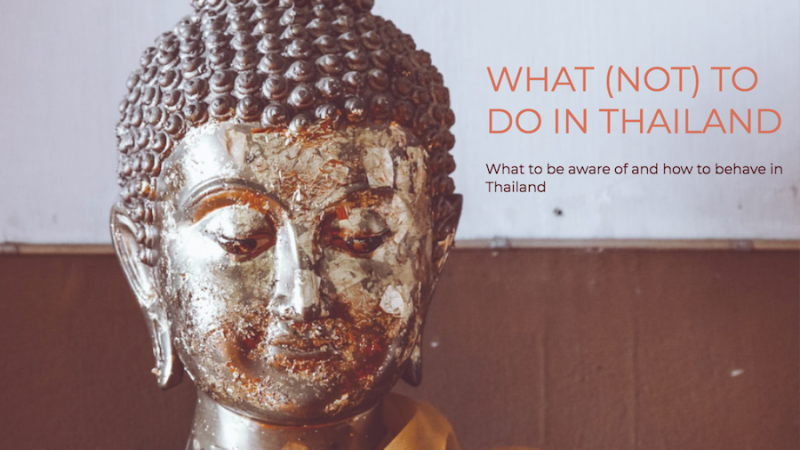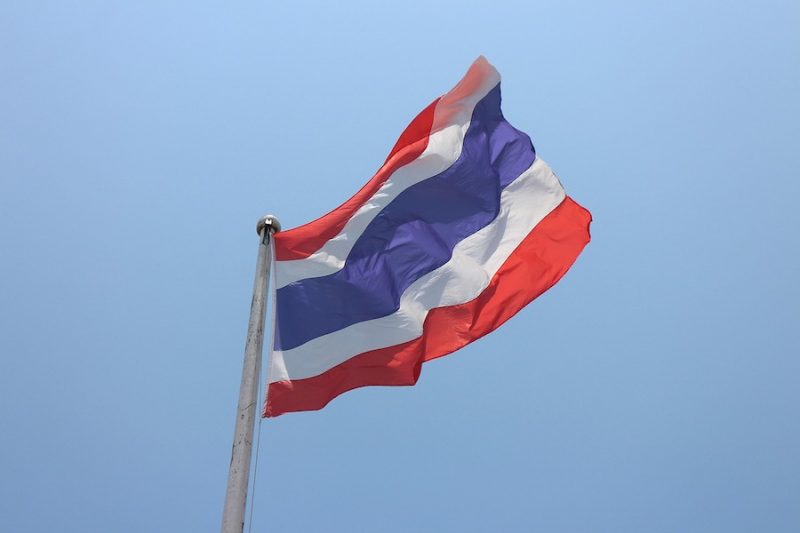- RESPECT, RESPECT, RESPECT
- DON’T GET INTO ARGUMENTS
- MAI PEN RAI
- DON’ TOUCH ANYONE’S HEAD
- BE CAREFUL WITH YOUR FEET
- DON’T SUNBATHE TOPLESS
- DRESS APPROPRIATELY
- SAY NO TO DRUGS
- BE POLITE AND HUMBLE
- DON’T TALK (NEGATIVELY) ABOUT THE ROYAL FAMILY
- THAI BANKNOTES AND COINS
- DON’T SUPPORT ANIMAL ABUSE
- DON’T SHAKE ANYONE’S HAND
- KNOW HOW TO TREAT THAI MONK
- DON’T FEED THE MONKEYS
- DON’T DRIVE MOTORBIKE AROUND THE TOWN IN BIKINIS
- BE DISCREET
- DON’T EXPORT BUDDHIST STATUES AND SOUVENIRS
- BE PATIENT
- DON’T DRINK AND DRIVE
- DON’T FORGET TO STAND UP DURING THE ANTHEM
- DON’T COLLECT SHELS AND CORAL
- DON’T GET OFFENDED
- TAKE CARE OF THE ENVIRONMENT
1 Respect, Respect, Respect
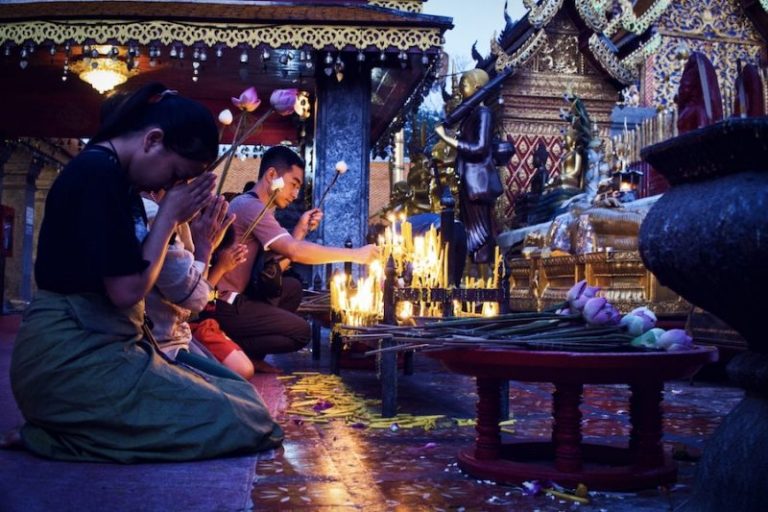
The whole Thai culture and also the family and social environment in Thailand are based on humility and respect for each other.
If you want to enjoy your holiday in Thailand, keep this in mind throughout your stay. If you behave with respect to Thai people, their culture and their beloved country, they will also have mutual respect for you and you will bring only positive experiences and amazing memories from your holiday in Thailand.
Be humble and respectful during your vacation. Respect the rules of etiquette and of course do not violate any Thai laws.
2 don't get into arguments
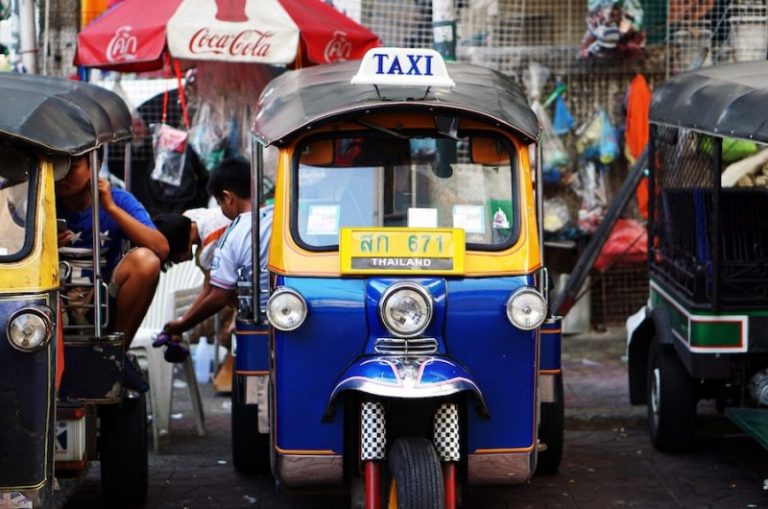
Do not make any commotion, shout or yell anywhere, and under no circumstances engage in an argument with the Thais. Public arguments or screaming are unacceptable, and raising your voice or throwing your hands around will not get you anywhere with the Thais, it will only make the situation worse.
It may happen that you will get in an unpleasant situation, someone has tricked you, or a problem occurred. It is essential to deal with everyone calmly and with a still voice…even if the blood boils in your body.
“Not losing your face” and your nerves in difficult and unpleasant situations is essential in Thailand. Although not all Thais has mastered this themselves. If you solve the situation calmly and with patience, you have a good chance for a positive outcome.
Losing your nerves will put a Thai person in an unpleasant situation, and you will have very little or no chance in solving the problem. Propose a compromise to resolve any misunderstandings and resolve things with a calm discussion. This is the only and right way to solve any awkward, or unpleasant situations in Thailand.
3 mai Pen Rai
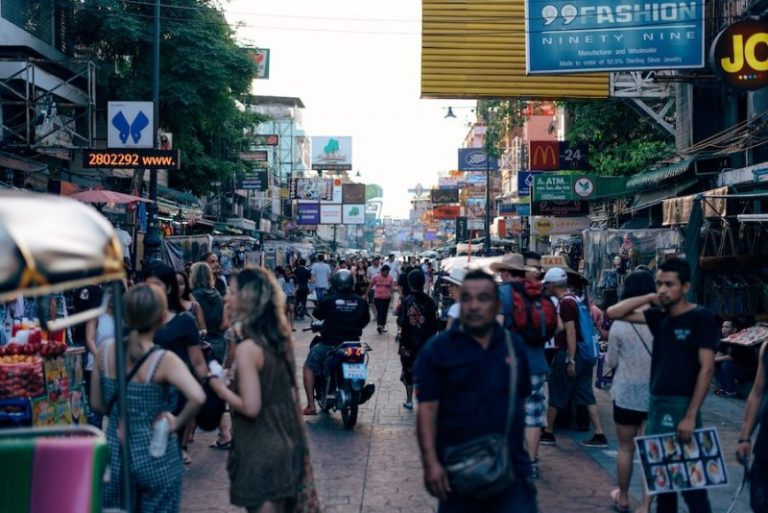
MAI PEN RAI (ไม่ เป็นไร) is one of the most used phrases in Thailand. Mai pen rai has many meanings and you can freely translate it as “no problem”, “it doesn’t matter”, “it’s okay”, “don’t worry about it”, “you’re welcome”.
It is necessary to remember that Thailand is totally different world. Thais have completely different cultural foundations and different thinking processes. When visiting Thailand try to adapt to Thai life and learn something new from Thai and Buddhist culture. If you have a problem that has no solution, then wave your hand above it and continue your holiday with a smile.
A cab driver arrived half an hour late? Mai pen rai, never mind, he will step on the gas. Has your boat broken down during your trip? Mai pen rai, the captain will fix it and the trip goes on. Didn’t the food come out to your liking? Mai pen rai, order something else.
Don’t worry about every little thing and issues you can’t control. Be present and enjoy every moment in this beautiful country.
4 Don't touch anyone's head
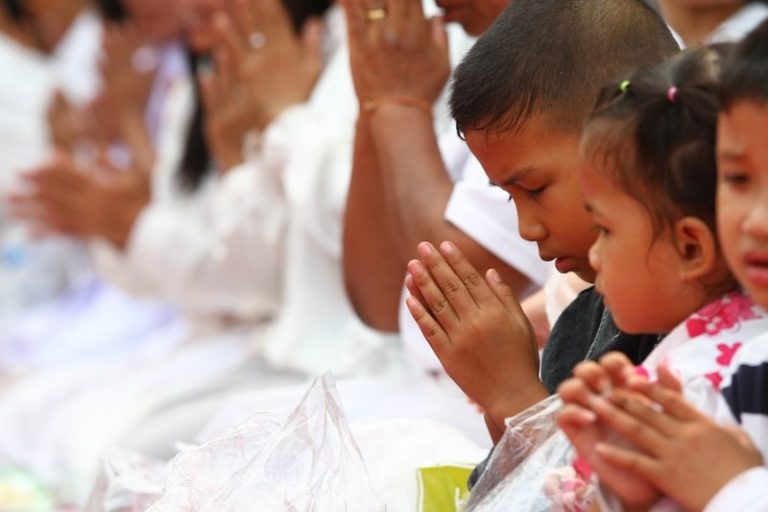
As you probably already know, in Thailand and Buddhist culture the head is considered sacred and cleanest part of the body, and it is not appropriate to touch anyone’s head. Especially if you do not know the person.
If this happens to you by mistake, apologize immediately. Most Thais forgive you right away. You will show that you are not ignorant and know about Buddhist customs.
Do not tousle children’s hair. This habit, which is an affectionate gesture in Europe and elsewhere, is not appropriate for you to do as a foreigner (unless you know your family intimately).
5 be careful with your feet
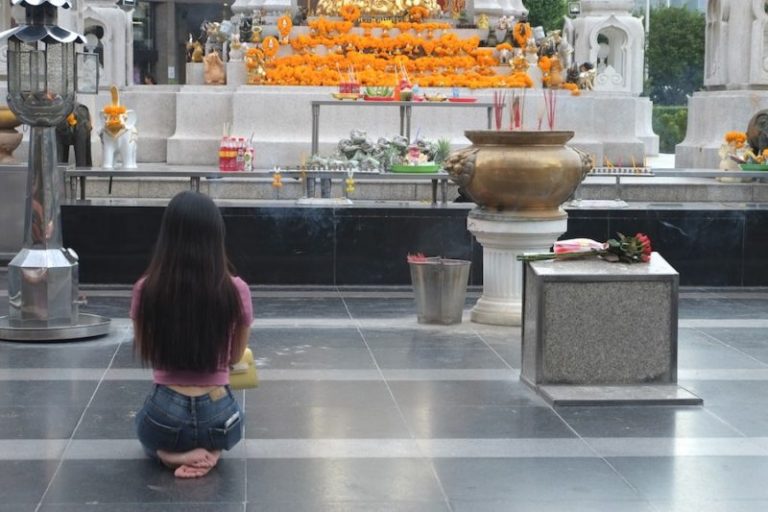
If your head is considered sacred in Thailand, your feet are the least worshipped part of your body and being looked as impure. Be very careful where you put your feet. Never put your feet on a seat, table or anywhere where your feet are directed towards another person, not to mention a Buddhist monument or shrine.
Last year, a photo appeared on Thai social media that shocked and offended the nation. The picture shows a tourist sitting on a bus with his (dirty) feet on the back of the seat in front of him, right above a Thai man’s head. Putting your feet over the head of a Thai Buddhist is unacceptable.
When visiting houses, and many shops (of course, except shopping centers), the rule is that you should enter without shoes. Also, take your shoes off when visiting temples, and some restaurants. Whenever you are not sure whether taking your shoes off or not, look if you can see a pile of shoes outside the door. Also do not put your shoes on the table.
6 don't sunbathe topless
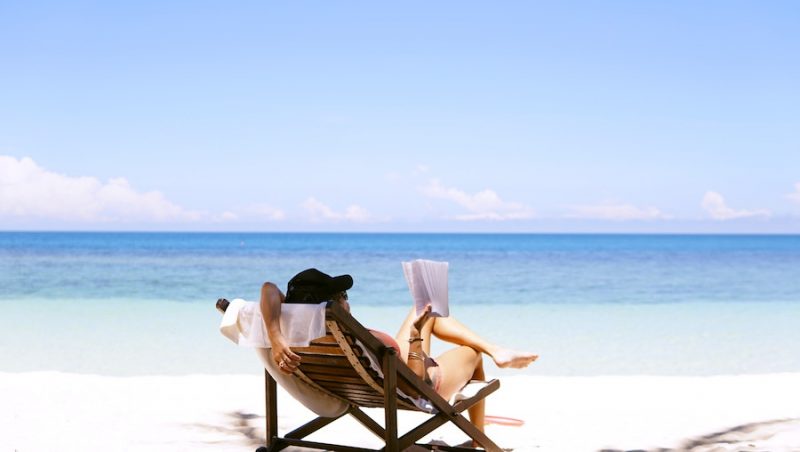
Topless sunbathing in Thailand is inappropriate, and you can even be fined for doing so on the islands of the National Park.
Many islands in the south part of Thailand and the southern provinces are predominantly Muslim and women should behave respectfully with respect for local culture, and religion.
7 dress appropriately
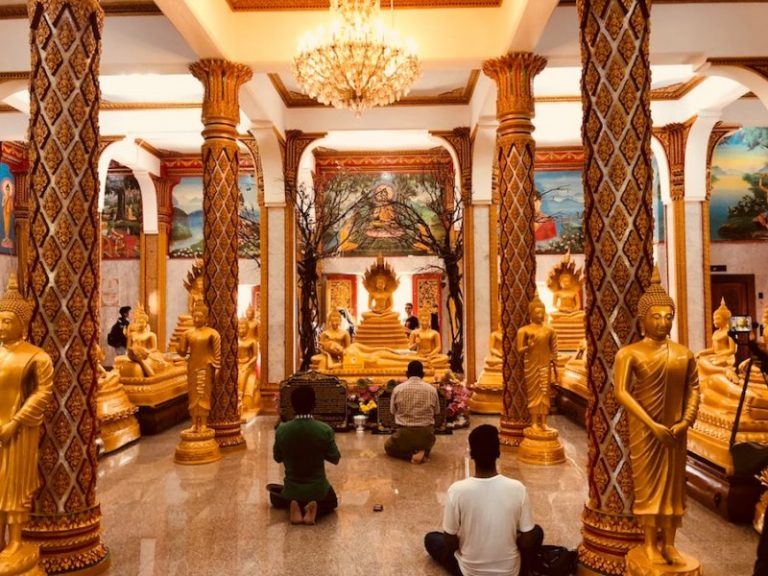
Do not forget when visiting any Buddhist monuments and temples, as well as all offices and official buildings, you must wear adequate clothing.
There is nothing worse than seeing ladies wearing mini shorts and crop tops in a temple or immigration office. If you do not want to be embarrassed or banned from entering temples or offices, do not forget to pack at least one long-sleeved T-shirt without a low neckline. For gentlemen is ok to wear t-shit/shirt with longer shorts or pants. Follow the rule – covered shoulders and knees.
If you want to sit on the floor in the temple, it is best to kneel and sit on your heels or leave your feet on one either of the sides.
8 SAy no to Drugs in Thailand
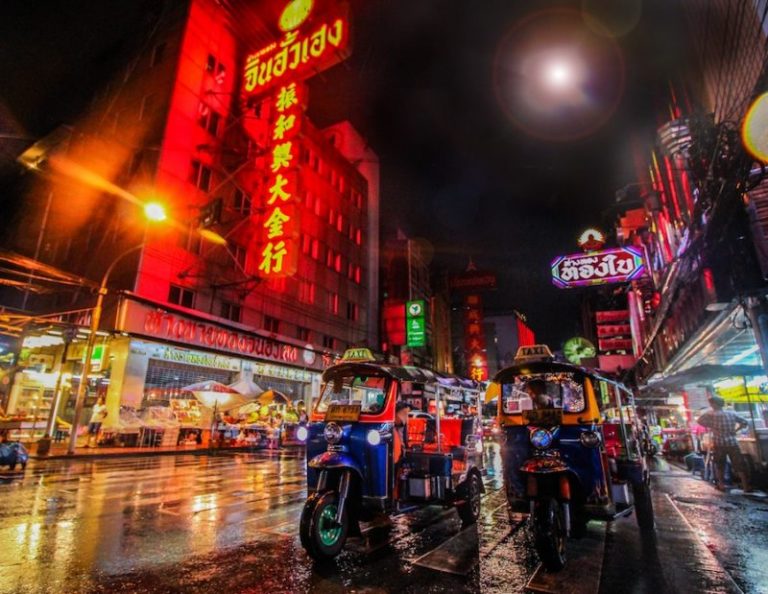
There is a zero-tolerance when it comes to drugs both in Thailand and throughout Southeast Asia. The possession and drug use, including marijuana, is a serious crime in Thailand, and there is still a death penalty or 50 years in prison for smuggling.
The horrific conditions in the Thai prisons are well-known all over the world and the notorious Bang Kwang Central Prison also known as the Bangkok Hilton is a place where no foreigner would want to find himself. Violence, suicide and rape are daily commonplace here. So have a beer or a cocktail on the beach and don’t risk experimenting with drugs in Asia.
9 Be polite and humble
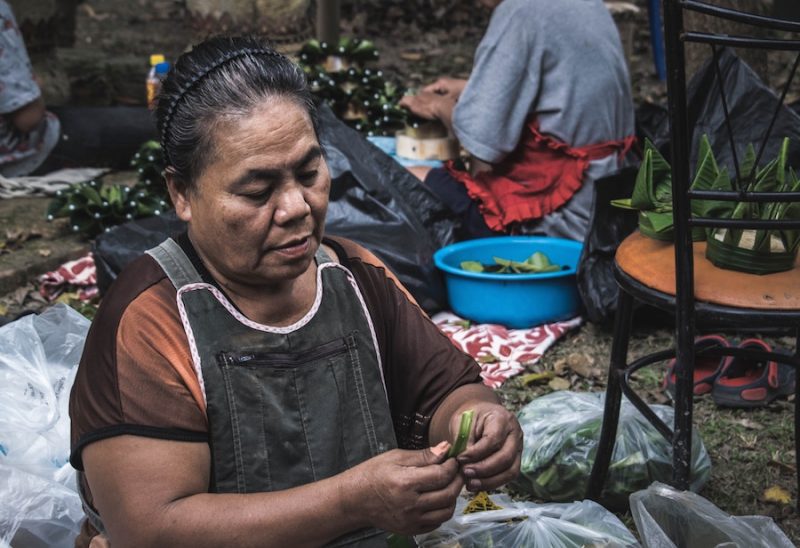
To be aware of the people around you is as important as not touching anyone’s head or positioning of your feet.
Do not walk through between two people sitting or standing opposite each other having a conversation. This is considered as rude, especially if people are older, and have a higher social status.
If you cannot walk around them, bend slightly so that your head is below the level of their heads, say “kor tod krap/ka“ = sorry, and pass quickly between them. Such a gesture of politeness and understanding of Thai culture will be greatly appreciated by the Thais.
10 Don't talk (negatively) about the royal family
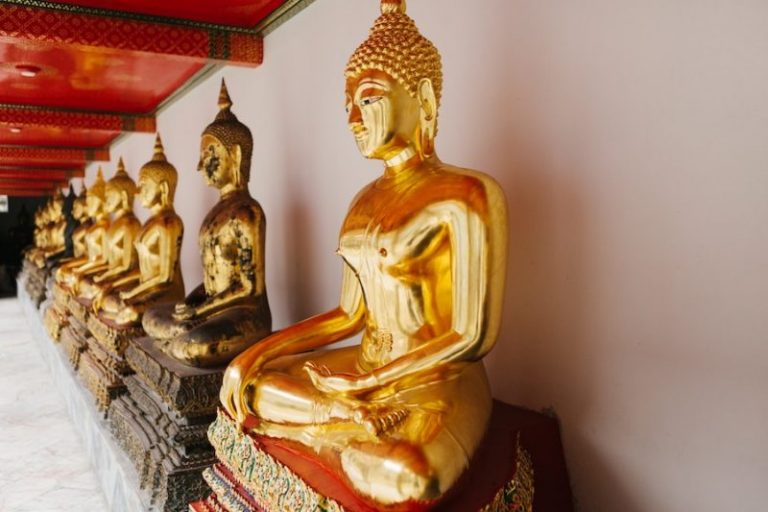
It is no secret that the Thais are an extremely proud nation with great respect for their royal family. It is totally inappropriate to talk to the Thais about a royal family or politics. The king is both the head of the monarchy and the religious symbol and is worshipped by the nation. Any negative, or silly remarks about the royal family are absolutely taboo and even against the law.
Since the military coup in 2006, the Thai government has imprisoned hundreds of Thai citizens who have been talking negatively about the monarchy.
Under the “lèse-majesté” laws, anyone can be charged with a crime of not respecting the king, queen, or any heir to the throne. The penalties were 10, 30 and even 60 years in prison for “crimes”, which on Facebook are generally nothing more than a few sentences. And these laws also apply to foreigners.
11 Thai banknotes and coins
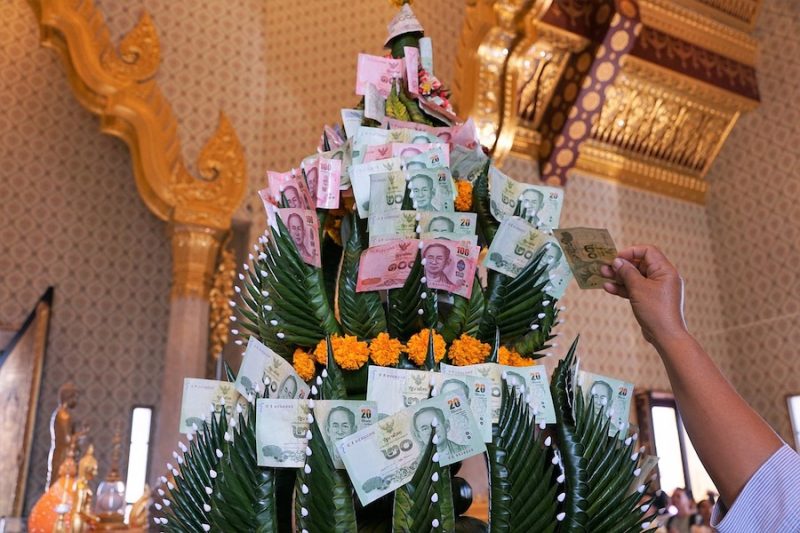
As stated above, as well as images and symbols of Buddha, the royal family and any image of the king in any form is considered sacred.
On all Thai banknotes and coins, you will find a depiction of the king and therefore treat Thai money with respect. Absolutely in no case step on the money, do not crumple the banknotes in your pocket, do not throw the money on shop’s counter, etc.
These rules also apply to other national symbols such as the flag, we must treat the national flag with respect.
12 Do not support animal abuse for tourist entertainment
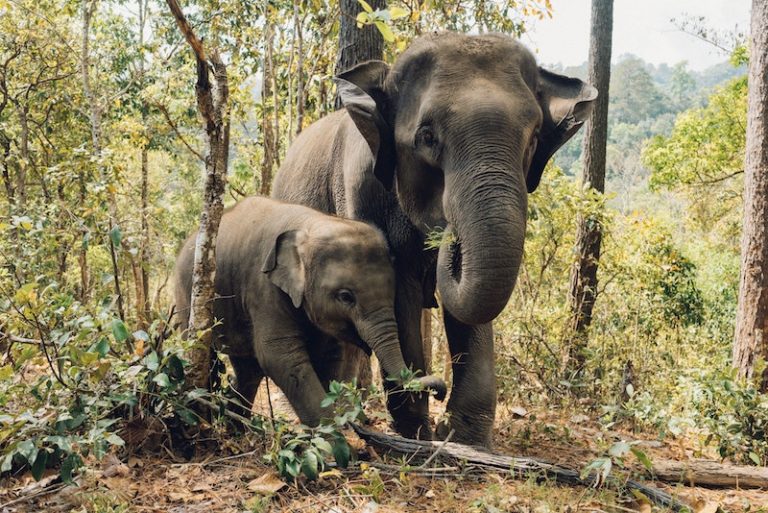
Do not support any facility where animals are used to entertain tourists, such as elephant, crocodile and dolphin shows. If you want to see and support animals in Thailand, you will find countless rescue stations, ethical shelters and reservations that focus on animal and environment protection and public education.
Do not visit any elephant farms where you will see riding seats and under no circumstances visit any places where they let you take pictures with big cats such as tigers and lions.
On busy tourist streets like Khao San road, Bangla in Patong and Walking Street you can also come across some locals who collect money for pictures with small monkeys, snakes, various lizards or even protected birds. Do not support this cruel business.
In the vast majority, these animals were taken as offspring from their mothers (the mother was often killed) and the animals are being drugged. It is a complete tragedy. The Thai police have already managed to eradicate most of these criminals in some places, but there are still selfies popping up on social media with little monkeys and other abused animals.
13 Don't shake anyone's hand
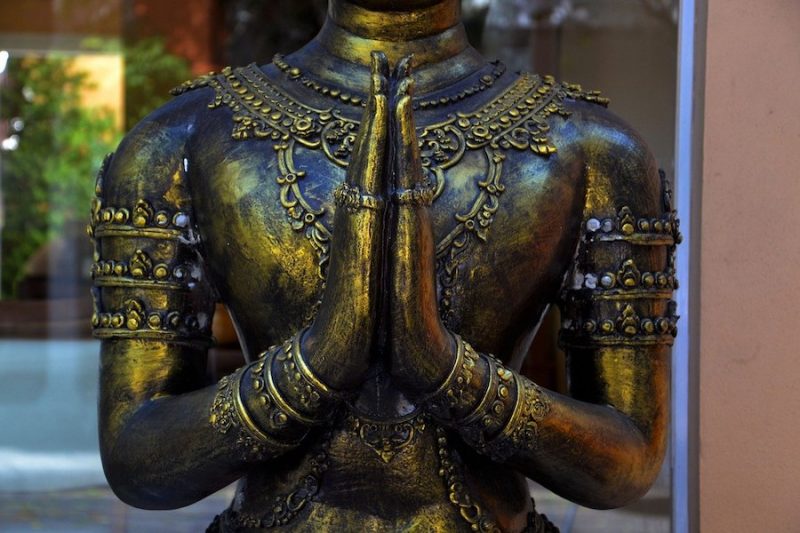
As you probably know, in Thailand there is no handshaking. You greet people with a gesture called “wai”.
To greet put your hands together as you would in prayer, with your index fingers at the level of your nose and your head bending slightly and say hello which in Thai is Sawady Krap/ Ka (สวัสดี ครับ / ค่ะ). Younger person greets the older person first. Wai is also used to thank and say goodbye.
14 know how to treat thai monk
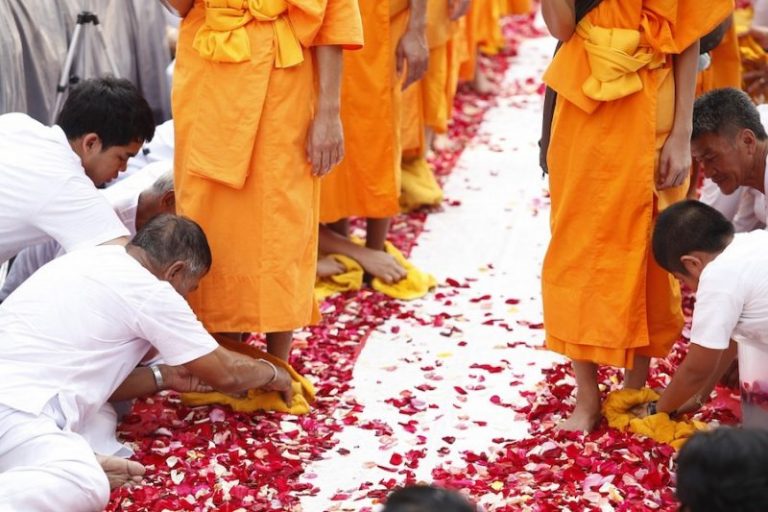
You must treat the Buddhist monk with humility and utmost respect. When you greet a monk, make sure you show your respect by bowing and your “wai” is even higher than for normal people (monks may not return the gesture).
As a woman, do not touch the monk, if you need to give him something, so you can put it in front of the monk, and he will take it himself.
In most places, including public transport, airports and offices, there are specially designated seating areas for the monks. Never sit next to the monks.
15 Don't feed the monkeys
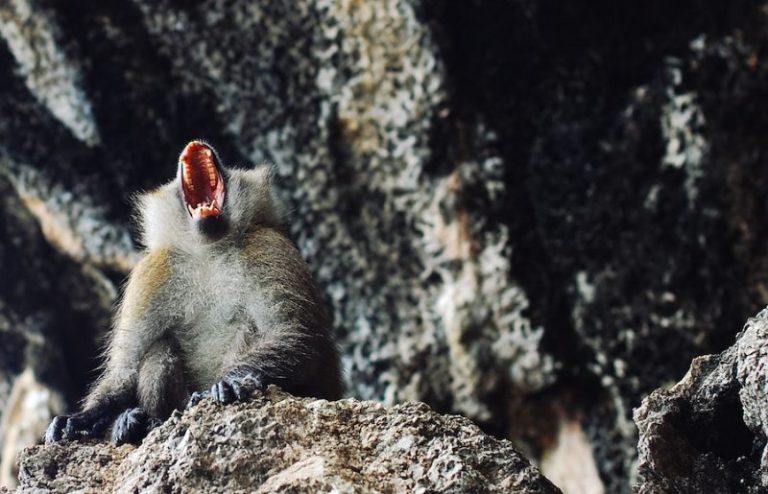
Monkeys in Thailand can be found on most islands, both in the jungle, and in many historical sites. They look very cute and playful, but they are not domesticated animals.
If you don’t want to end up in the clinic and get a few injections against rabies, which is by the way very expensive, just watch the monkeys from a distance and respect the fact that they are wild animals.
Never feed the monkeys. You only hurt them by feeding them. They change their natural behavior, stop hunting and rely on what tourists bring them. Then they start going more to the towns and populated areas, which happens a lot on Phi Phi. They are jumping on rooftops and electric lines, and it had happened several times that the monkey was hit by electric current.
16 Don't drive motorbike around the town in bikinis
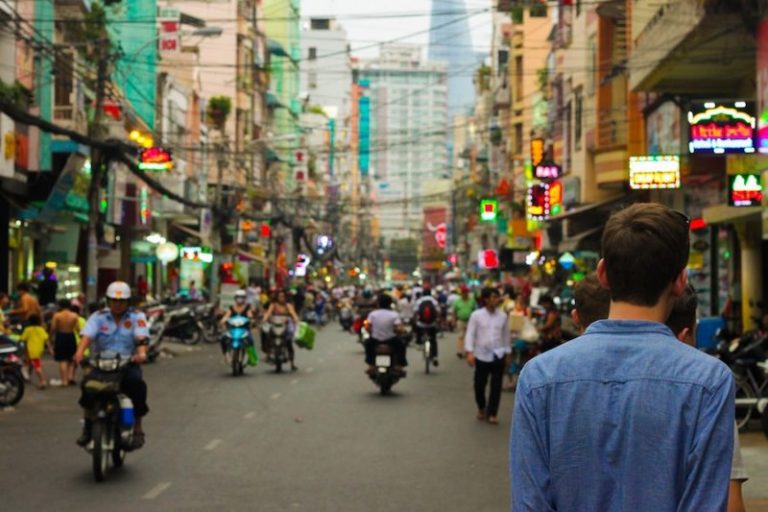
It is not appropriate to drive or ride around the town on a motorcycle in a swimsuit or bikinis.
Not only it is impropriate, but you also have no skin protection in the event of an accident and from the sun.
If you accidentally fell off the bike or you slide on the scooter, you probably scratch and burn your entire body. Nobody expects you to wear a professional motorcycle suit, but appropriate clothing, that also doesn’t get you sunburned, is a good idea.
17 BE discreet
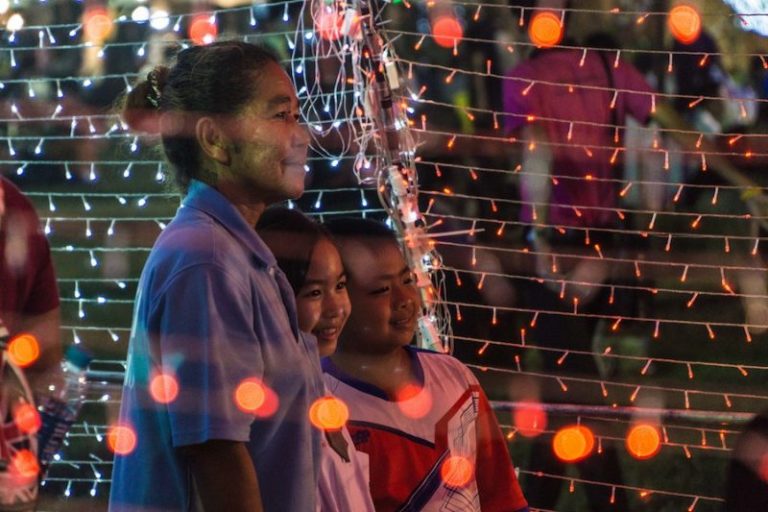
If the Thais themselves do not start telling any personal stories or have a something private to share with you, do not start inquiring about their past. Thais live in a moment and try to enjoy life as it is, they try not to worry about the future and not to dwell on the past.
Don’t ask Thais (especially those you don’t know at all) about the sad days in their lives.
As an example, I will mention the tsunami that hit Thailand in 2004. Many tourists come to Thailand on holiday and want to know the details of the event from the locals who have experienced the tsunami and expect personal stories with many details. I have some good friends in Koh Phi Phi who unfortunately have lost one or several family members during this tragedy. Occasionally they start to tell or remember, but I would never interrogate them.
Asking the waitress in the restaurant how many people died on the island during the tsunami is inappropriate- you do not know if this person has not lost a loved family member.
18 Don't export Buddhist statues and souvenirs
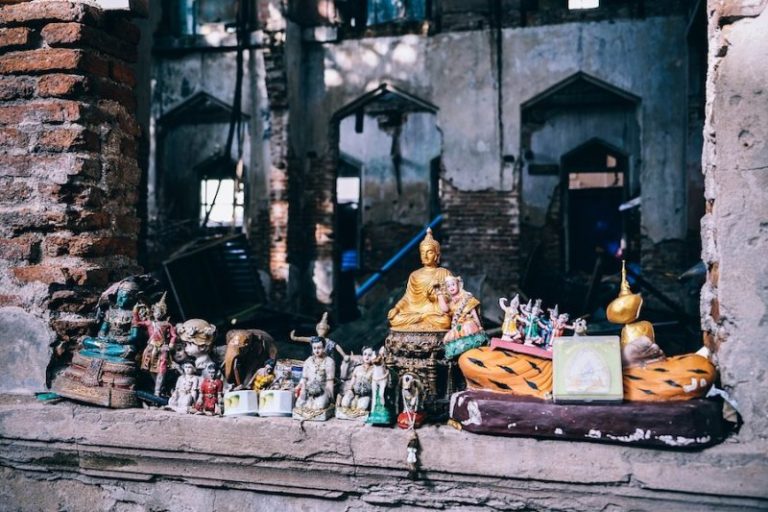
When choosing souvenirs in Thailand, you have to be careful about a few things.
Do not buy anything that is made of shells, coral, shark teeth, etc., these products are prohibited by law from being exported from the country. In addition to having these items confiscated at the airport, you can also be fined.
It is also illegal to export images and various posters depicting the Buddha as well as various Buddha statues without special permission. Buddhist paintings and images with related fragments that are part of ancient monuments and prehistoric objects are forbidden to export from the kingdom without exception. Buddha images without historical value can be exported for worship, cultural exchange or educational purposes licensed by the Fine Arts Department. Not more than 5 pieces per person is allowed.
The obvious thing is the owner of a souvenir shop will not inform you about this because all they care about is making the sale, however you can run into trouble at the airport as it is your responsibly to know the law.
Thais take their religion and all the rules related to it very seriously.
19 Be patient
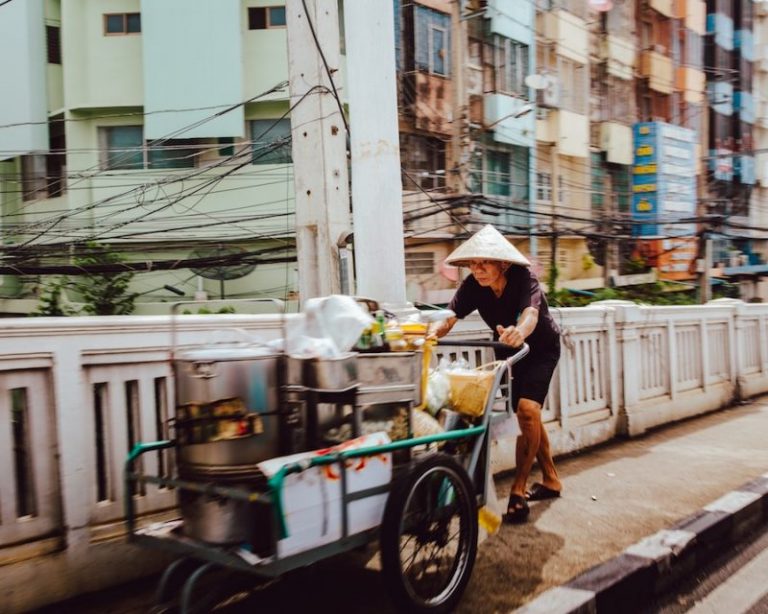
Patience is a key factor for your happy holiday in Thailand.
Thais do not worry too much about punctuality, mainly outside Bangkok and larger cities. When I have a date with my Thai friends, I know they will be at least 30 minutes late. Most Thais have also a wrong idea about how long 5 minutes last. +/- 20 minutes is absolutely nothing to even considering talking about.
20 Don't drink drive, or drive without A license or helmet
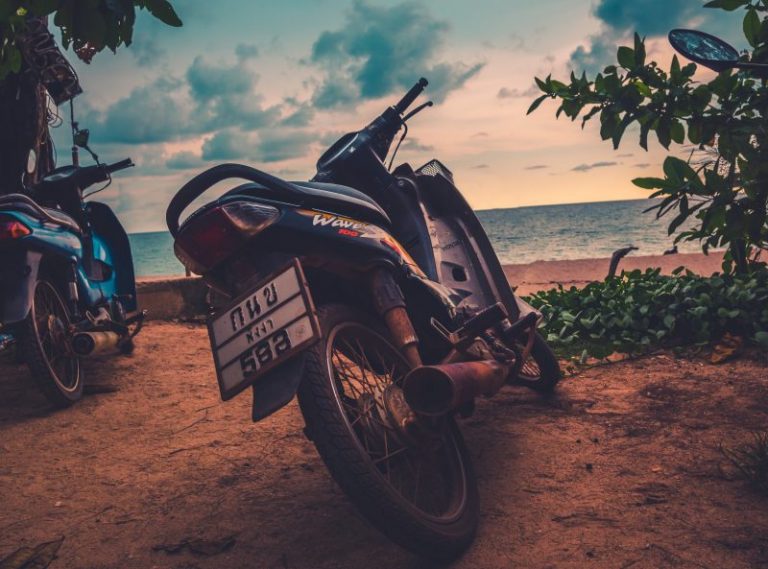
To drive legally in Thailand you will need a valid international driving license group “A” (for a motorbike). Some countries in Europe are given automatically driving license for small moped with their driving license for a car. These subgroups are not valid in Thailand and won’t be accepted.
If you happen to be involved in a traffic accident and do not have the ‘A’ international driving license, even if the accident is not your fault, nobody won’t even talk to you. You will be obliged to pay all costs for damages and medical expenses, both for yourself and others involved. If you drive illegally without a valid driving license, you will of course not be entitled to any payment cover from your insurance company.
As for actually renting a scooter without a proper driving license, most rental shops will lend you a motorcycle based on your passport even without looking at your driver’s license. If you then want to risk and break the law in a foreign country is your choice.
Wearing a helmet is a must and under no circumstances should you drive under the influence of alcohol or drugs. An accident can occur that will not even be your fault, and if you have alcohol in your blood, nobody, and nothing will help you.
21 Don't forget to stand up during the anthem
This is not any news to the frequent visitors of Thailand. But if you are going to Thailand for the first time, you may be surprised to hear the national/royal anthem playing in public places every day at 8:00 am and at 6:00 pm.
The anthem is played on radio, television, schools and public spaces. It is not everywhere and every day, for example in Koh Phi Phi and smaller islands, the anthem is not played as often as in Bangkok and larger cities. In Thai, the anthem is called “Pheng Chat”, which can be translated as a royal song and is an expression of Thai culture, love and respect for the country, and the royal family.
When the anthem starts playing (takes less than a minute), stop, stand up and quit doing whatever you do. You will show that you respect Thailand, local people and culture.
22 Don't collect shells and corals on the beach
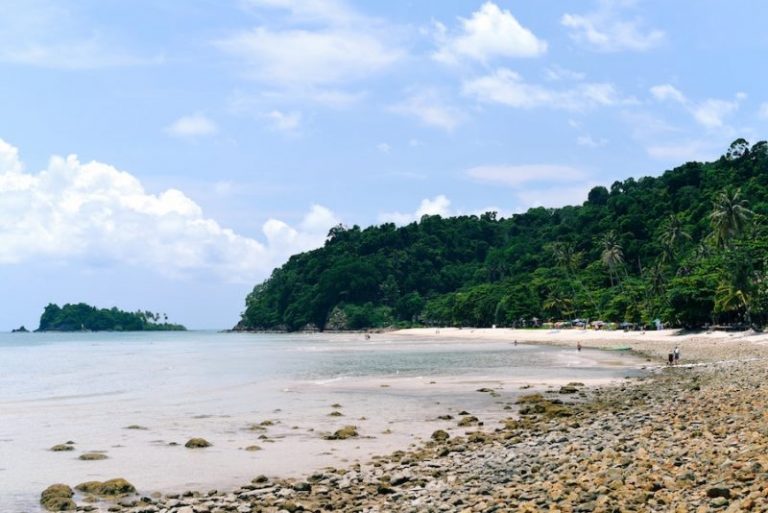
According to the Customs Department, it is illegal to import souvenirs from your holiday that violate applicable international regulations and can not be imported without the appropriate documents. Many of these souvenirs are protected specimens of endangered animal and plant species that are protected by CITES. If the passenger does not have the necessary documents for the imported specimens, they are subsequently seized and the case is further investigated by the Environmental Inspectorate.
Forbidden items include food supplements that contain parts of protected plants and animals. It also includes dried butterflies, souvenirs from the sea (corals and shells), bones, skulls, teeth, tiger claws, etc.
You can also get into trouble while you still in Thailand. There are “rangers” in all Thai national park areas, who are legally entitled to impose penalties on anyone who damages or removes corals, shells or other creatures from the sea. The prohibited category includes not only shells and corals from the sea, but also those that washed up the sea, or which has already been processed into a souvenir.
Besides being it illegal, there is no reason to collect and remove shells or pebbles from the beach because of the possible harm of nature and change of the local environment. If every tourist visiting the beach took something home, there won’t be much left in the ocean.
23 Don't get offended
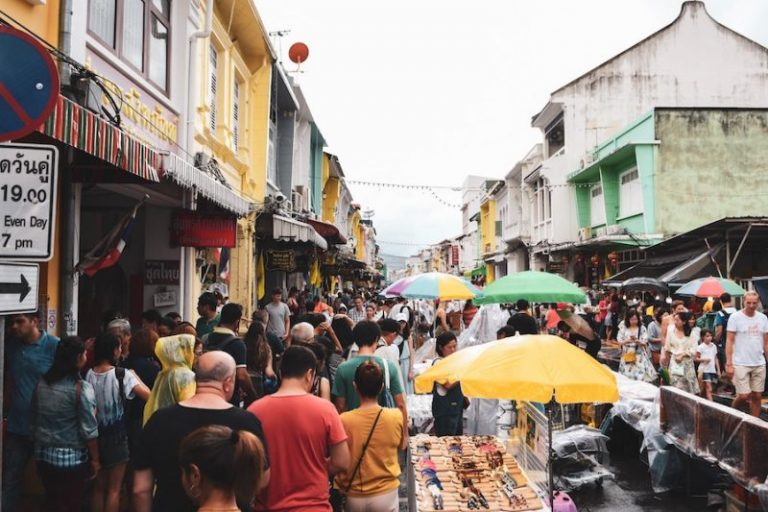
Thais have somewhat strange sense of humor and if you make friends with the locals, be prepared for questions like how much money you earn, if you are married, why you don’t have children and similar private and sensitive topics.
Quite commonly, Thais will make fun of our weight or size, which is regarded as taboo in western culture. They have no problem to point out that you have put on some weight or looking a bit older. It is best to answer such “funny” remarks with a joke and have a little dig yourself.
24 Take care of the environment
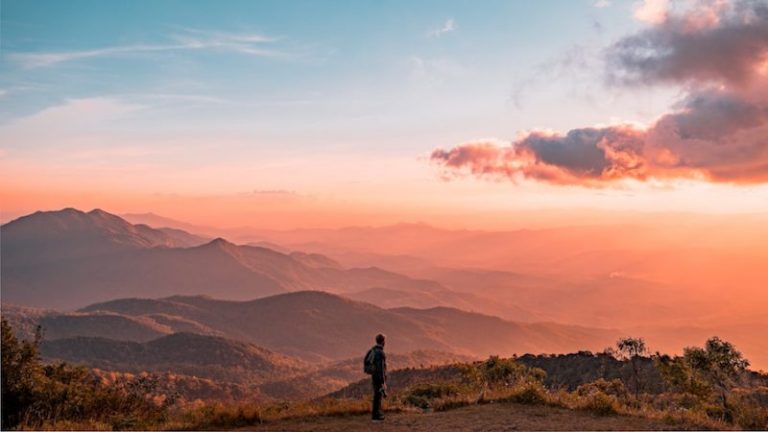
Thailand has stunning nature, and it’s home to thousands of unique species of plants and animals. As a visitor, respect this unique and fragile ecosystem and help us preserve the beauty of Thailand.
There are a few things you can do during your holidays to help keeping Thailand as beautiful as it is.
- recycle (if you have the means)
- don’t use single-use plastic products – plastic bags, plastic straws, etc.
- bring a cloth bag with you (you can buy one in any 7/11 for 10 THB)
- get a reusable bottle (stainless steel, plastic or one you already have at home)
- spend one day or afternoon of your holiday with a local organization such as Trash Hero.
- use a sunscreen that does not contain chemicals that destroy coral reefs


